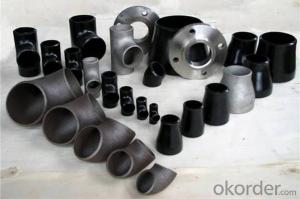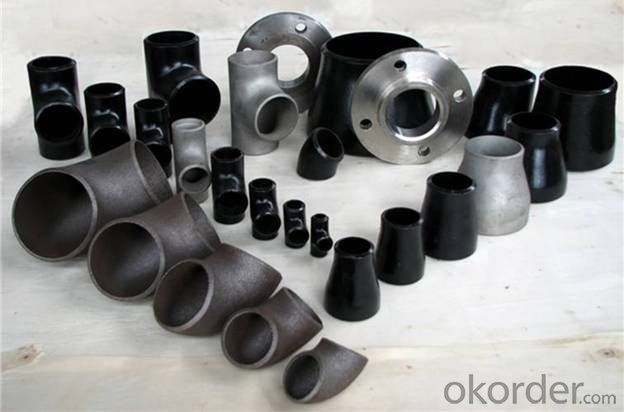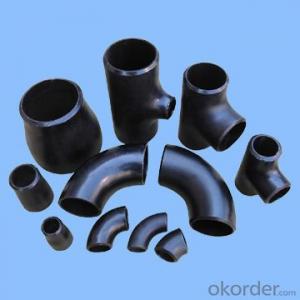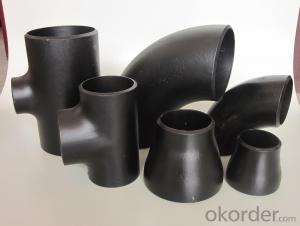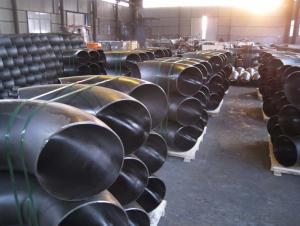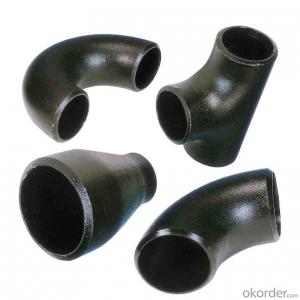CARBON STEEL PIPE FITTINGS ASTM A234 FLANGE 18'' 24'' 26''
- Loading Port:
- Tianjin
- Payment Terms:
- TT OR LC
- Min Order Qty:
- 5 m.t.
- Supply Capability:
- 30000 m.t./month
OKorder Service Pledge
OKorder Financial Service
You Might Also Like
Specifications
1.we produce seamless steel pipe
2.size:48-219*4.5-45mm
3.ISO 9000 approved
4.Market:south/east Asia,Mid-east,South America
seamless steel pipe
Material J55 K55 N80 L80 P110.etc
Standard ASTM JIS
Usage conveying oil gas ,oil pipe line,pipe material collar,oil nature gas,
Packing wooden cases or wooden pallet ,export standard package
Others:Special design available according to requirement
Anti-corrosion available and high temperature resistence
Delivery time 30days
Payment term T/T L/C
Name | API oil casing pipe | ||||
Out Diameter | Wall thickness | Material | Thread | Length | |
in | mm | ||||
5 1/2 | 139.7mm | 6.20 | J55/K55/N80 | LTC/STC/BTC | R2 |
6.98 | |||||
7.72 | |||||
9.17 | |||||
10.54 | |||||
6 5/8 | 168.28mm | 7.32 | J55/K55/N80 | LTC/STC/BTC | R2 |
8.94 | |||||
10.59 | |||||
12.06 | |||||
12.06 | |||||
8 5/8 | 219.08 | 8.94 | H40 | S/L/B | 9 5/8R2 |
J55/K55 | S/L/B | ||||
10.6 | L80 | L/B | |||
12.7 | L80 C95 | L/B | |||
14.15 | P110 | L/B | |||
9 5/8 | 244.48 | 13.84 | J55 K55 | R2 | |
15.11 | L80 | L/B | |||
10 3/4 | 273.05 | 11.43 | J55 K55 | S/B/E | R2 |
13.84 | P110 | S/B | |||
15.11 | P110 | S/B | |||
11 3/4 | 298.45 | 12.19 | J55 K55 | S/B | R2 |
10.96 | J55 K55 | S/B | |||
13 3/8 | 339.72 | 12.19 | J55 K55 L80 | S/B | R2 |
10.92 | J55 K55 | S/B | |||
13.06 | L80 | S/B | |||
Coupling and thread can be required according to customer requirment
- Q: What is the production process of seamless steel tube?
- The main production process for hot rolling seamless steel tube (the main inspection):Tube preparation and check delta to billet heating, heating, rolling, perforated pipe, steel pipe and heat treatment, diameter (minus) Delta to finished tube straightening, finishing and inspection of delta (nondestructive, physicochemical, Taiwan inspection and warehousing)
- Q: What are the different types of supports used for aboveground steel pipes?
- There are several types of supports commonly used for aboveground steel pipes, including pipe hangers, pipe clamps, pipe saddles, and pipe shoes. These supports are designed to provide stability and prevent excessive movement or vibration of the pipes, ensuring their proper alignment and preventing damage.
- Q: Can galvanized steel tubes simmer?
- Galvanized steel pipe can simmer bending.Is a set of bending bending bending die, no matter what kind of equipment, most are used in pipe, mainly used for oil and gas, infusion, more plays an important role in aircraft and engine.
- Q: Are steel pipes suitable for underground compressed air systems?
- Yes, steel pipes are suitable for underground compressed air systems. Steel pipes are known for their strength and durability, making them capable of withstanding the high pressure and potential corrosion that may occur in underground environments. Additionally, steel pipes are resistant to heat and can efficiently conduct compressed air, making them a reliable choice for such systems.
- Q: What are the different types of steel pipe connections for oil and gas pipelines?
- The different types of steel pipe connections for oil and gas pipelines include threaded connections, welded connections, and flanged connections. Threaded connections involve screwing the pipes together using a threaded end, which ensures a secure fit. Welded connections involve permanently joining the pipes together using welding techniques such as butt welding or socket welding. Flanged connections involve attaching flanges to the ends of the pipes and bolting them together, providing a strong and leak-proof connection.
- Q: How are steel pipes used in the transportation industry?
- Steel pipes are commonly used in the transportation industry for various purposes such as the construction of pipelines, including oil and gas pipelines, water pipelines, and sewage pipelines. They are also used in the manufacturing of automotive parts, such as exhaust systems, and in the construction of infrastructure such as bridges and tunnels. Additionally, steel pipes are used in the transportation of goods through shipping containers and railway tracks.
- Q: What is the maximum pressure that steel pipes can withstand?
- The maximum pressure that steel pipes can withstand varies depending on factors such as the steel grade, pipe dimensions, and wall thickness. However, steel pipes are known for their high strength and durability, allowing them to withstand pressures ranging from a few hundred to several thousand pounds per square inch (psi).
- Q: What are the different types of flanges used with steel pipes?
- There are several types of flanges that are commonly used with steel pipes, including slip-on flanges, weld neck flanges, threaded flanges, socket weld flanges, lap joint flanges, and blind flanges. Each type has its own unique design and application, and they are used to connect and secure steel pipes together in various industrial and construction settings.
- Q: What is the difference between steel pipe and polyethylene pipe?
- Steel pipe and polyethylene pipe are utilized for plumbing and construction purposes, but they differ in terms of their materials and characteristics. Steel pipe derives its strength and durability from a combination of iron and carbon. It is commonly employed in industrial settings or for underground gas and oil pipelines where high pressure and heavy loads are expected. Steel pipe is renowned for its corrosion resistance and ability to withstand extreme temperatures. In contrast, polyethylene pipe is a plastic pipe crafted from either high-density polyethylene (HDPE) or low-density polyethylene (LDPE). It is lightweight, flexible, and easy to install, making it a popular choice for residential plumbing and irrigation systems. Polyethylene pipe can resist chemicals, UV rays, and abrasive materials, making it suitable for both above-ground and underground installations. Another notable distinction between steel pipe and polyethylene pipe is their respective costs. Steel pipe is generally more expensive due to the raw materials and manufacturing processes involved. Conversely, polyethylene pipe is relatively affordable and cost-effective, especially for smaller-scale projects. Regarding maintenance, steel pipe necessitates periodic inspections and maintenance to prevent corrosion and ensure durability. Conversely, polyethylene pipe is virtually maintenance-free due to its resistance to corrosion and chemical degradation. To summarize, the primary differences between steel pipe and polyethylene pipe lie in their composition, strength, durability, cost, and maintenance requirements. The choice between these pipes depends on the project's specific needs, considering factors such as pressure, load, budget, and environmental conditions.
- Q: How are steel pipes used in construction?
- Steel pipes are commonly used in construction for various purposes such as structural support, plumbing, and transportation of fluids and gases. They are used in building frameworks, bridges, and underground infrastructure, providing strength, durability, and flexibility. Steel pipes are often employed in plumbing systems for water supply and drainage. Additionally, they serve as conduits for conveying gas, oil, and other substances. Their versatility and strength make steel pipes an essential component in modern construction projects.
Send your message to us
CARBON STEEL PIPE FITTINGS ASTM A234 FLANGE 18'' 24'' 26''
- Loading Port:
- Tianjin
- Payment Terms:
- TT OR LC
- Min Order Qty:
- 5 m.t.
- Supply Capability:
- 30000 m.t./month
OKorder Service Pledge
OKorder Financial Service
Similar products
Hot products
Hot Searches
Related keywords
